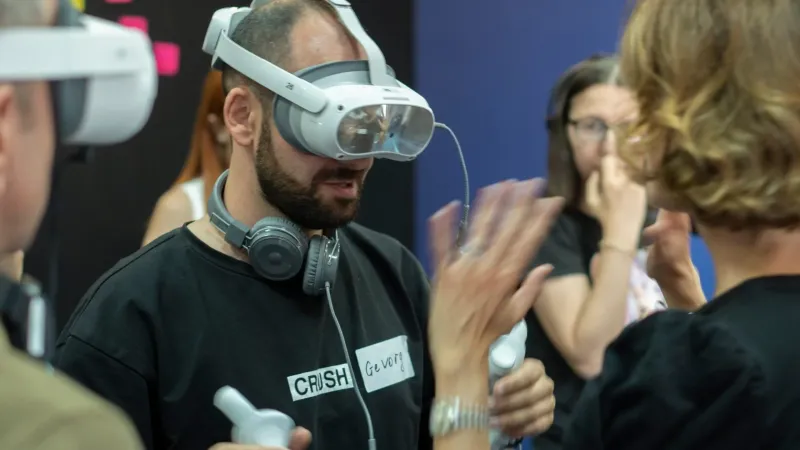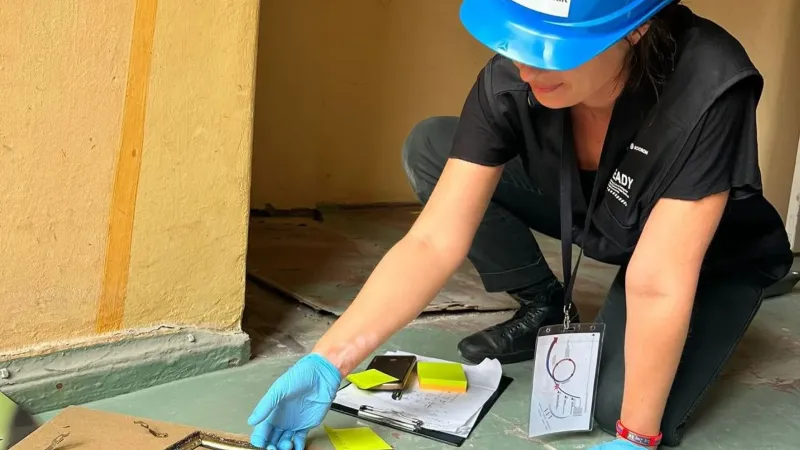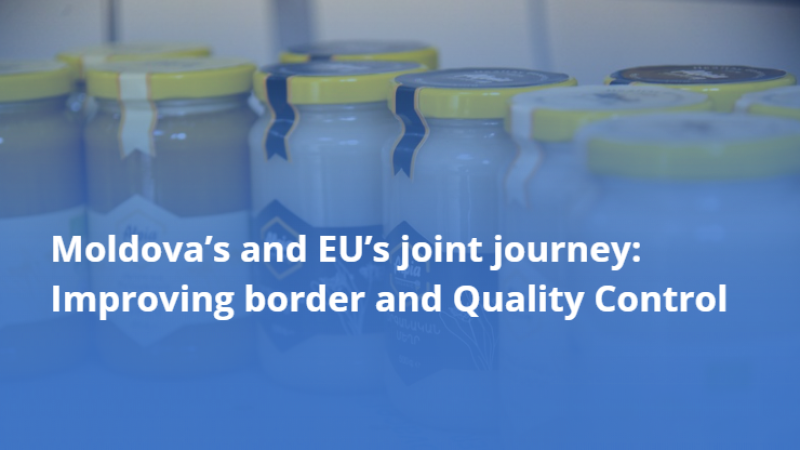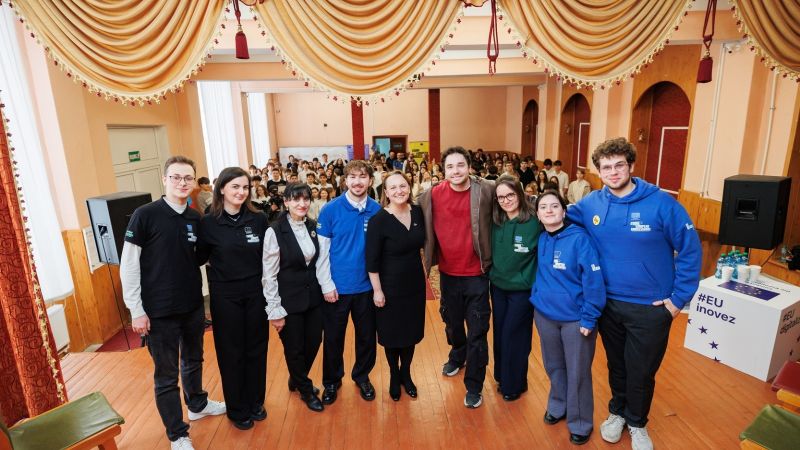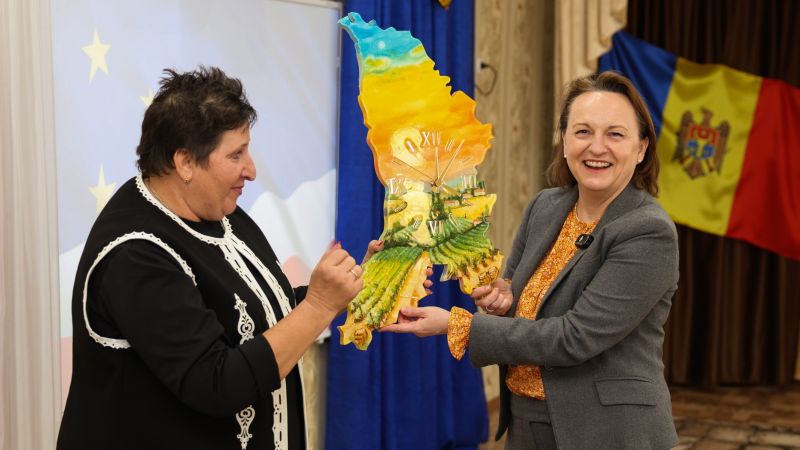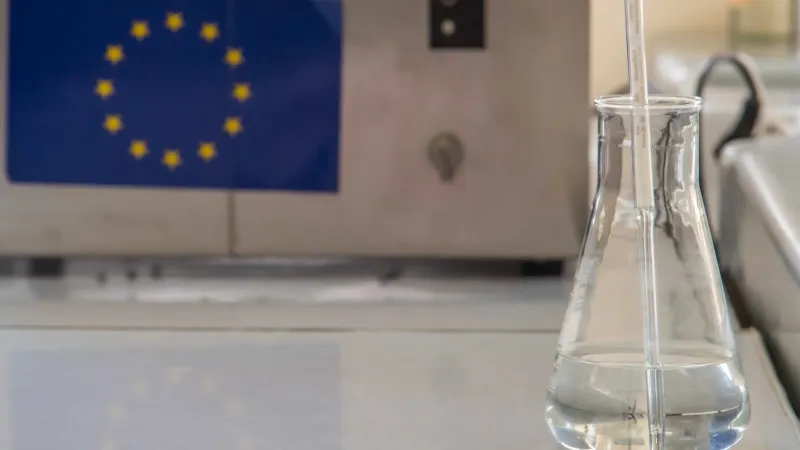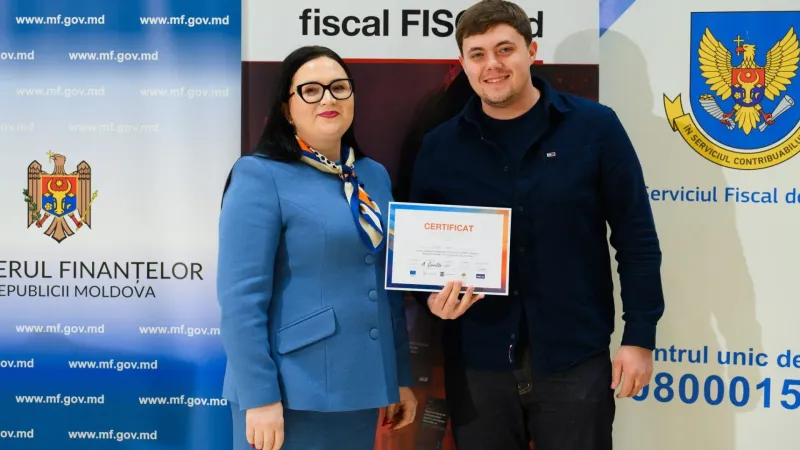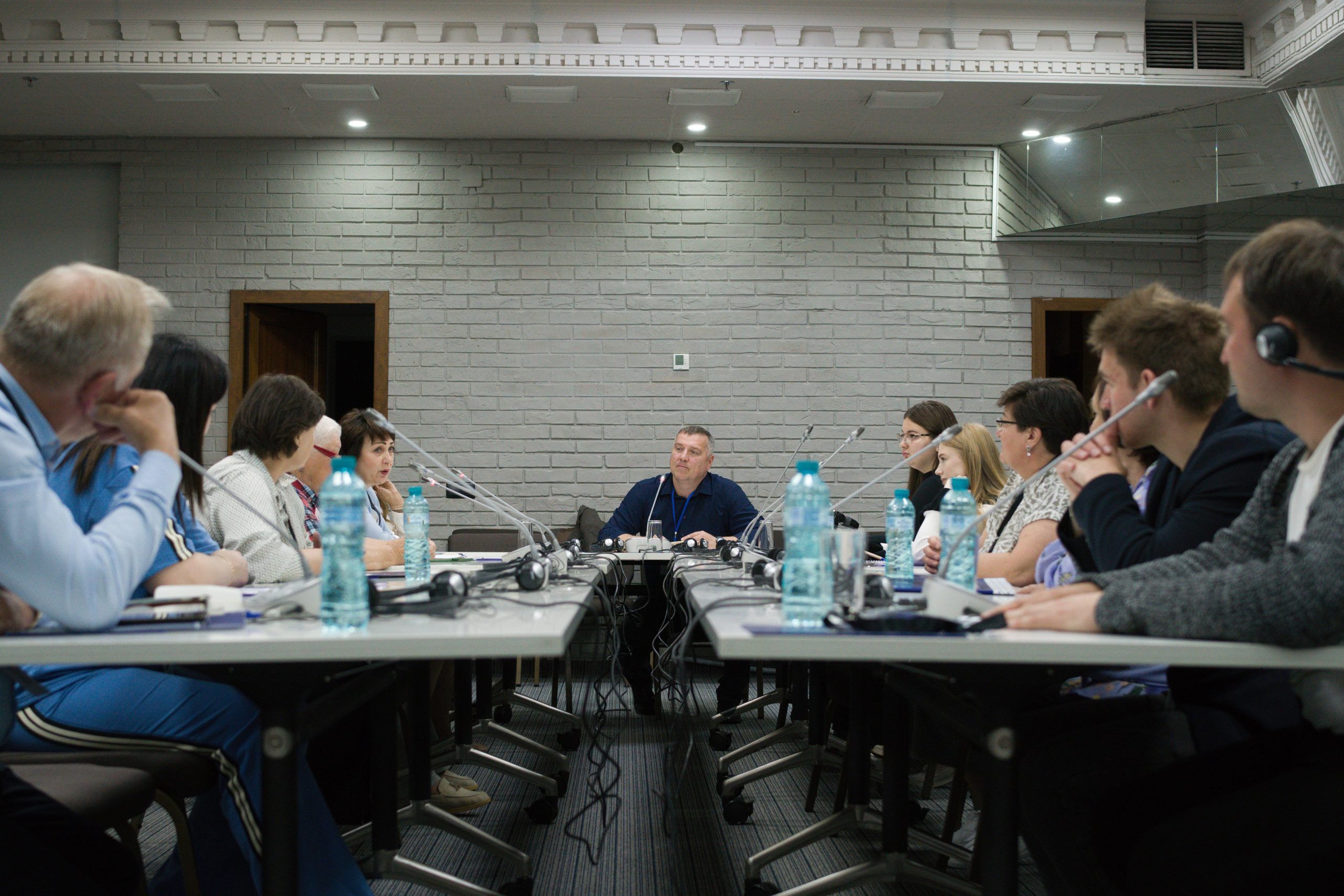
Moldova’s first Citizens’ Assembly has convened
For the first time, 38 citizens from across the country – randomly selected, representing diverse regions, socio-economic backgrounds, languages, genders, and ages – took part in a Citizens’ Assembly to jointly develop recommendations on preventing the risks of disinformation to democracy and on strengthening the rule of law. The shared proposals adopted by the Assembly reflect a broad consensus on the need for concrete action against disinformation and highlight the importance of the solutions identified by participants to protect Moldova’s democracy.
Citizens’ assemblies are a widely used method of democratic participation. They enable ordinary people to be actively involved in decision-making, with authorities taking their recommendations into account.
The Assembly in action
During the Citizens’ Assembly, participants worked in groups with the support of facilitators, exploring questions such as: what does democracy mean to them; how does disinformation affect their daily lives; and how can Moldovan society become more resilient in the face of this phenomenon.
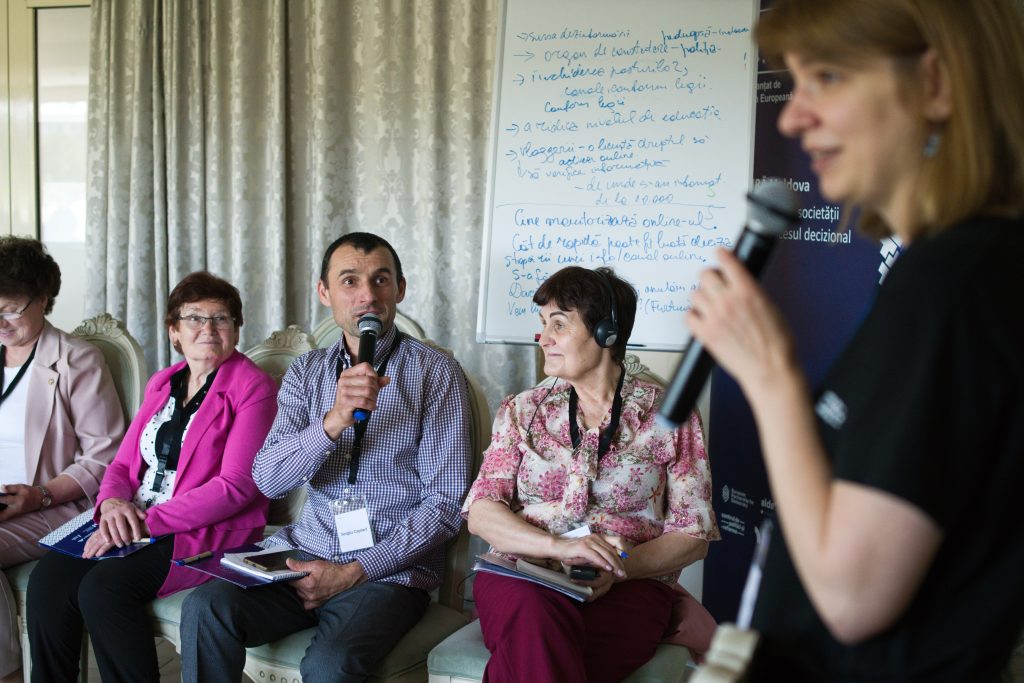
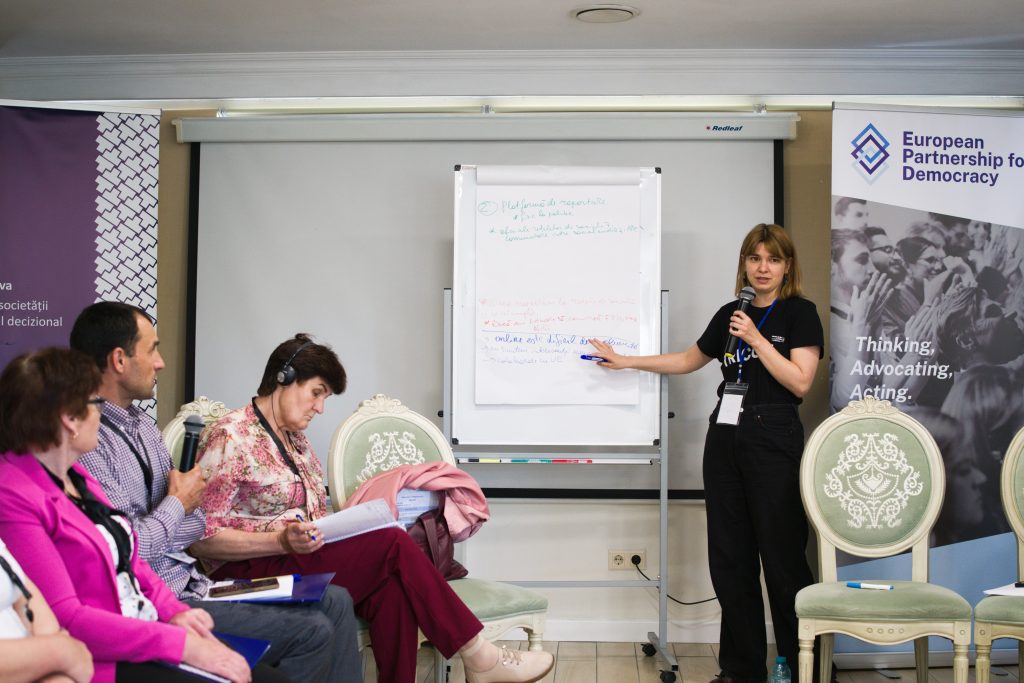
Discussions were enriched through dialogues with media and human rights experts, including the Ombudsman of the Republic of Moldova. These experts engaged with the groups by answering questions, offering practical examples, challenging assumptions, and linking the discussions to broader democratic debates within the country and international legal frameworks.
On the second day of the Assembly, citizens interacted directly with high-level representatives of
key public institutions, such as the Audiovisual Council, the Presidency, MPs from parliamentary committees on national security and education, and the Centre for Strategic Communication and Countering Disinformation. Citizen groups addressed them questions, which helped shape and clarify the final recommendations.
Participants explored different ways to tackle disinformation, from the critical role of education in developing responsible media consumption skills to potential measures against those who create and spread false information. They discussed how disinformation undermines public trust and family bonds, emphasising the need to protect citizens from its risks and to support efforts to prevent disinformation.
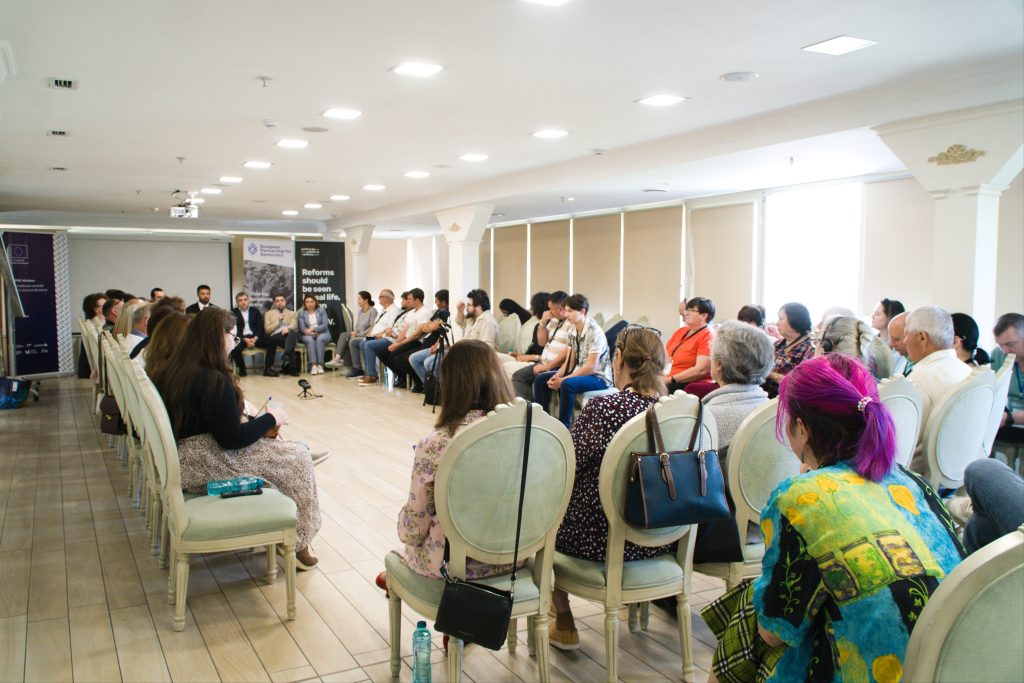
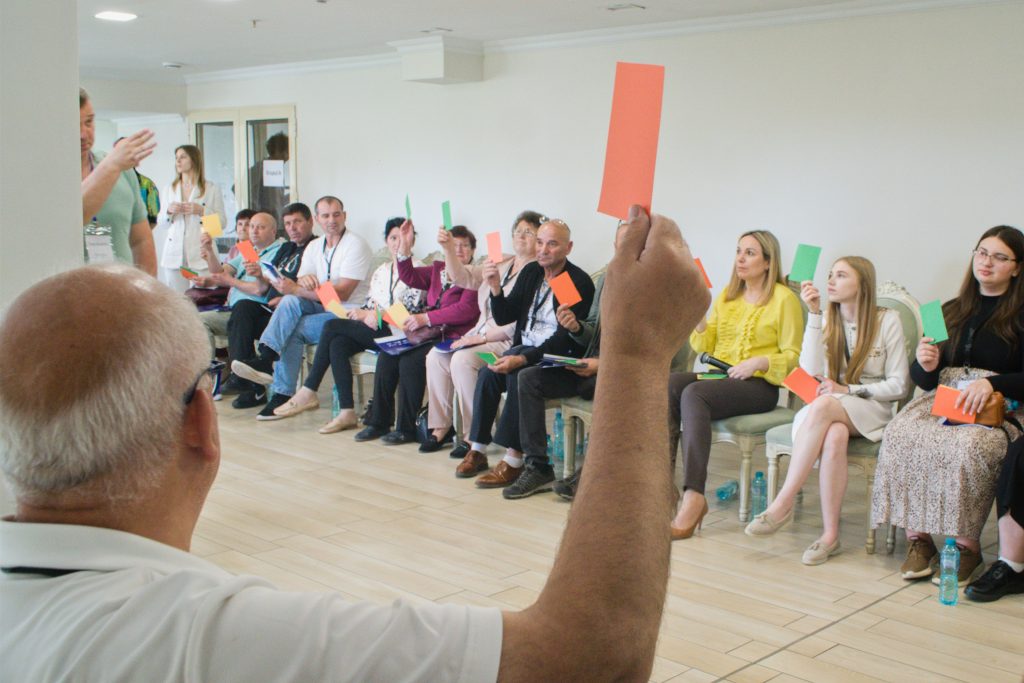
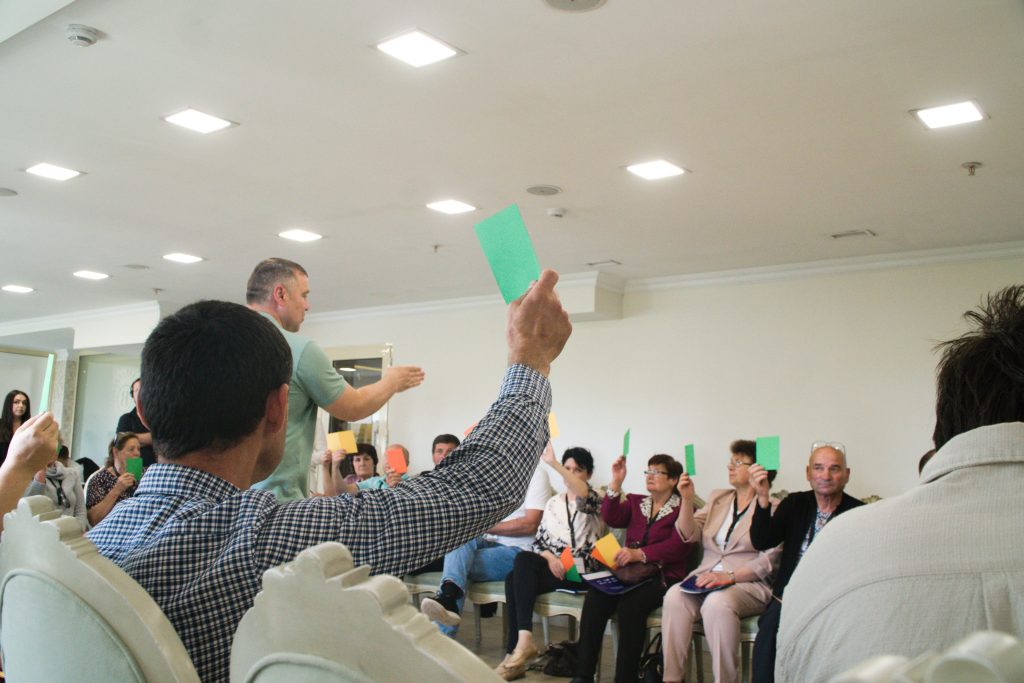
Drafting and adopting shared recommendations
Final recommendations were adopted with the support of at least 70 % of participants. This high approval threshold aligns with international standards and ensures that each recommendation benefits from strong collective backing.
The diversity of views brought added value to the deliberative process and led to broad consensus on the recommendations, demonstrating the power of dialogue and shared reflection in finding solutions to strengthen democratic resilience. At the end of the two days of work, these were the adopted recommendations:
- State institutions should ensure transparency in decision-making processes, keeping citizens well-informed and actively engaged in national political life, supported by robust fact-checking mechanisms and consistent communication at local, regional, and national levels. (38 votes in favour – unanimity). Participants stressed the urgent need for greater transparency and trustworthy information to rebuild public trust and counter the rapid spread of disinformation. They emphasised that a proactive approach from state institutions is vital to respond to the threats that disinformation poses to democratic stability.
- The Ministry of Education and Research should introduce a dedicated module on disinformation within social studies classes and information technology education, as part of the national curriculum, targeting both lower and upper secondary education pupils. (36 in favour, 1 abstention, 1 against). The panel agreed on the essential need to provide children and young people with opportunities, through education, to develop skills to identify, resist, and report disinformation.
- The Parliamentary Committee for Media, in partnership with civil society, should support the creation of a specialised department within the Audiovisual Council dedicated to countering online disinformation. This department should be responsible for monitoring digital content and coordinating with social media platforms to implement appropriate measures, such as issuing warnings, fines, and recommendations to suspend accounts where necessary. It should also serve as a channel for receiving and processing citizen complaints via themed filters, while promoting accurate information and raising public awareness of the risks and impacts of disinformation. (30 in favour, 4 abstentions, 4 against). Participants stressed the need for an independent, specialised body capable of delivering a rapid and coordinated response to online disinformation, combining enforcement responsibilities with citizen engagement, especially given the lack of social media regulation in Moldova.
- State institutions should support the efforts of experts and journalists in tackling the spread of false information online. (34 in favour, 4 abstentions, 0 against). The Assembly highlighted the essential role of experts and journalists in urgently addressing disinformation, underscoring their vital mission in preserving a truthful and resilient information environment.
These recommendations will be submitted to the relevant institutions, including Moldovan authorities, Parliament, and other national and international organisations.
An innovative mechanism for inclusive public dialogue
Citizens’ assemblies are a form of participatory democracy that bring together a diverse and representative segment of society to address complex issues through thoughtful deliberation. Rooted in the principles of inclusion, informed dialogue, and consensus-based deliberation, these assemblies create a unique space where citizens engage with each other and with experts to formulate practical recommendations to address public challenges. This model has already proven effective in countries like Ireland, Spain, and Belgium – influencing decisions on climate action, urban planning, or social policies, for instance – and is increasingly being adopted worldwide as a means of revitalising democracy.
Testing this method in Moldova offers a fresh perspective on a complex issue by piloting consultations and consensus-based decision-making, while encouraging constructive dialogue. At a time when trust in political and social institutions is declining globally, Moldova’s first Citizens’ Assembly aims to promote mutual understanding and to rebuild trust in the power of collective action.
Context
The Assembly was organised as part of the INSPIRED Moldova project, funded by the European Union and implemented by the European Partnership for Democracy (EPD), the European Association for Local Democracy (ALDA), the National Assistance and Information Centre for NGOs in Moldova CONTACT, the Centre for Policies and Reforms (CPR Moldova), Democracy Reporting International (DRI), and People in Need (PIN). The views expressed during the event do not necessarily reflect the official position of the European Union.

